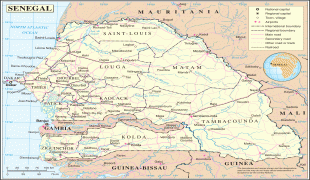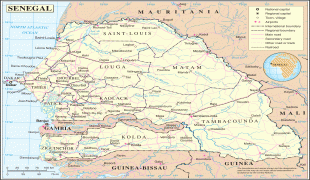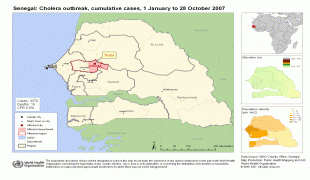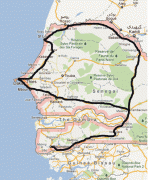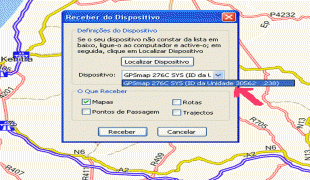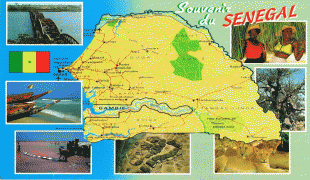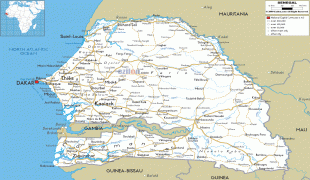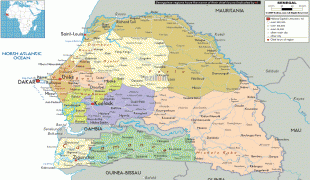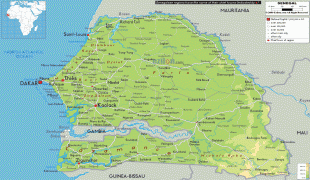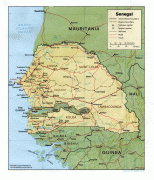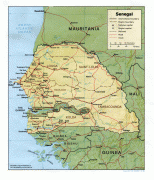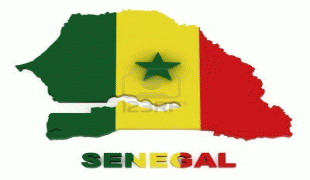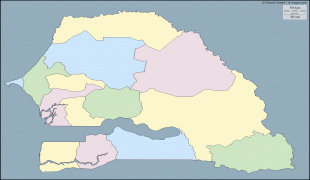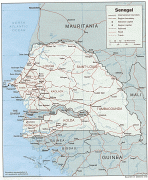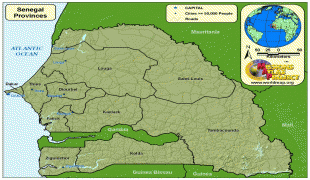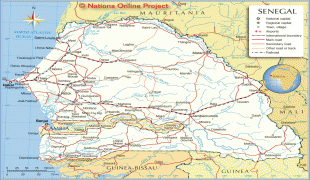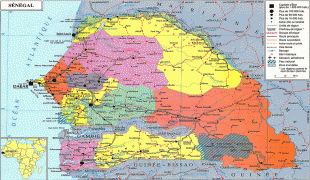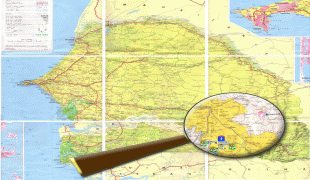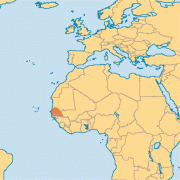Senegal (Republic of Senegal)
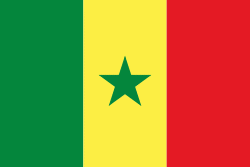 |
 |
| Flag of Senegal | |
Senegal is notably the westernmost country in the mainland of the Old World, or Afro-Eurasia. It owes its name to the Senegal River, which borders it to the east and north. The climate is typically Sahelian, though there is a rainy season. Senegal covers a land area of almost 197000 km2 and has a population of around million. The state is a unitary presidential republic; since the country's foundation in 1960, it has been recognized as one of the most stable countries on the African continent.
The state was formed as part of the independence of French West Africa from French colonial rule. Because of this history, French is the official language, but it is understood only by a minority of the population. Over 30 languages are spoken in Senegal, and Wolof is the most widely spoken one, with 80% of the population speaking it as a first or second language, acting as Senegal's lingua franca alongside French. Like other post-colonial African states, the country includes a wide mix of ethnic and linguistic communities, with the largest being the Wolof, Fula, and Serer people. Senegalese people are predominantly Muslim.
Senegal is classified as a heavily indebted poor country, with relatively low HDI ranked 170th in the Human Development index. Most of the population is on the coast and works in agriculture or other food industries; other major industries include mining, tourism, and services. The country does not have notable natural resources, but the basis of its development lies in education, where almost half the state's budget is spent. Senegal is a member state of the African Union, the United Nations, the Economic Community of West African States (ECOWAS), Organisation internationale de la Francophonie, the Organisation of Islamic Cooperation, and the Community of Sahel-Saharan States. Internationally, Senegal is best known in the sporting world for the Paris-Dakar Rally.
The country of Senegal is named after the Senegal River. The name of the river may derive from a Portuguese transliteration of the name of the Zenaga, also known as the Sanhaja. Alternatively, it could be a combination of the supreme deity in (Rog Sene) and o gal meaning body of water in the Serer language. It is also possible that it derives from the Wolof phrase "Sunuu Gaal," which means "our canoe".
Currency / Language
| ISO | Currency | Symbol | Significant figures |
|---|---|---|---|
| XOF | West African CFA franc | Fr | 0 |
| ISO | Language |
|---|---|
| FR | French language |
| WO | Wolof language |






